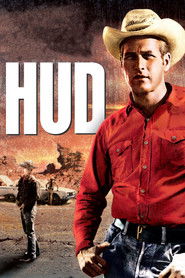Existing somewhere between Rebel Without a Cause (1955) and The Last Picture Show (1971) both in thematic material and literal release date, this is definitely one of Paul Newman's career-best performances.
Hud's producers have created a kind of New Wave western, using simple realism as their strongest tool. They evoke it with sounds: a transistor radio in de Wilde's shirt pocket twanging hillbilly anthems, the slamming of a screen door on a hot night, the screak-screak of the ice-cream freezer on the back porch, the relentless whistling of the wind scorching in off the plains, the brutal whump of the springs of the Cadillac as it guns across the railroad tracks. They also evoke it with the black-and-white camera of Old Master James Wong Howe: Dr. Pepper signs, juke joints, a greased-pig rodeo.
— TIME (1963)
Synopsis: Hud Bannon is a ruthless young man who tarnishes everything and everyone he touches. Hud represents the perfect embodiment of alienated youth, out for kicks with no regard for the consequences. There is bitter conflict between the callous Hud and his stern and highly principled father, Homer. Hud's nephew Lon admires Hud's cheating ways, though he soon becomes too aware of Hud's reckless amorality to bear him anymore. In the world of the takers and the taken, Hud is a winner. He's a cheat, but, he explains, "I always say the law was meant to be interpreted in a lenient manner."

